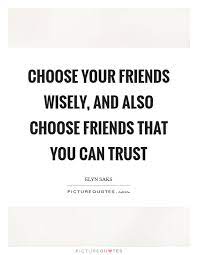OF DEMOCRACY
“For
forms of government let fools contest, what is best administered is best”
I
still remember this quote. It was a question which I had to answer in my second
year political science exam in the University of Ghana. I remember I did not
know how to go about answering this question and for 20 minutes I just sat
still wondering what it meant, and how to answer it. The lecturer – who considered
almost everybody a buffoon – had outmanoeuvered us all. The other lecturers
could not come to terms with how to correctly answer the question. Well I made
an “A” in that course so I guess I answered right.
The
meaning of the sentence up there is not in doubt. The speaker meant simply that
forms of government were not as important, good governance was (as in “…what is
best administered is best”). So the question remains what good governance is or
means. Is good governance necessarily democratic? It must be said that the
western world has been particularly lucky (or is it blessed?). Going from
monarchy to fiefdom to the signing of the Magna Carta to the constitution of
parliaments etc., the Western world has had at least 300 years to practice and
perfect the mode of governance now called democracy gradually building the
sustainable institutions needed to make that system of governance work. This
was however not without any challenges at all. Remember that democracy in ancient
Athens excluded a whole class of “slaves” to the advantage of a class of
“citizens” – those born of Athenian ancestry. Remember that in Europe and the
US especially, it took time before women acquired electoral franchise whilst it
took blacks even longer to do same. The bottom-line is that whereas Europe and
the United States have had a long history (at least 200 years) perfecting
democracy, Africa did not set out on this same path.
From
history, Africa has known what I term “Patriarchal Monarchy”, i.e., government
by Kings or Chiefs. The Chiefs and Kings were members of a royal clan who were
chosen usually by kingmakers who happened to be heads of families in the royal
clan, or heads of the other clans that make up the tribe. The king was all
powerful, distributing power and favours as he liked. Of course the king had
the Queenmother and gods to worry about. If he misruled the Queenmother could
effect a destoolment or the gods could deal with him or the other chiefs in the
state could come together to remove him.
A lot
of us Africans love to console ourselves with the view that there was democracy
at work in the African governance system. The African intellectual is striving
so hard to let the world know that the African was democratic simply because
family heads or Kingmakers came together to choose a Chief, as though democracy
was all about elections. Assuming, without admitting, that the African was
democratic, why are we so much seeking approval from the West overtly and
covertly of our “democratic” standing? Is democracy only about elections? Who proffered
that western democracy with all its freedoms and rights and responsibilities was
the best form of governance to be practiced in Africa? Who said autocracy was
an inherently evil or incompetent form of governance? Or is it because Russian
Marxism went into crises and Russia eventually lost the Cold War, Marxism is a
bad form of governance?
Why is
Africa not growing, or why has Africa not been allowed to grow a system of
government that suits its cultural, social, economic and political
peculiarities? I’m always flabbergasted when I see Africans who are democratic
zealots. Purveyors of democracy are as inconsistent as the ideology they are
selling. Let me ask, why is the “Mother” of all democracies torturing people
and imprisoning some without trial? Yet another world leader does this and he
is evil?
The
inherent problem with democracy is its brazen idealism. Democracy seems to fail
to respond to reality, and when it does, it is under wraps because it has sold
itself on idealism.
I am
not saying democracy is bad, no. I’m simply saying that it does not suit
Africa’s historical, social and economic peculiarities. We do not have the
structures the US and Europe has built to support their democracy. Even where
such structures have been built, they look awkward, like square pegs in round
holes. I believe it is possible for Africa to develop, but we must develop on
our own terms. What Africa needs isn't strong institutions, or even strong men.
Africa needs its own form of governance so it can develop on its own terms.



Comments
Post a Comment